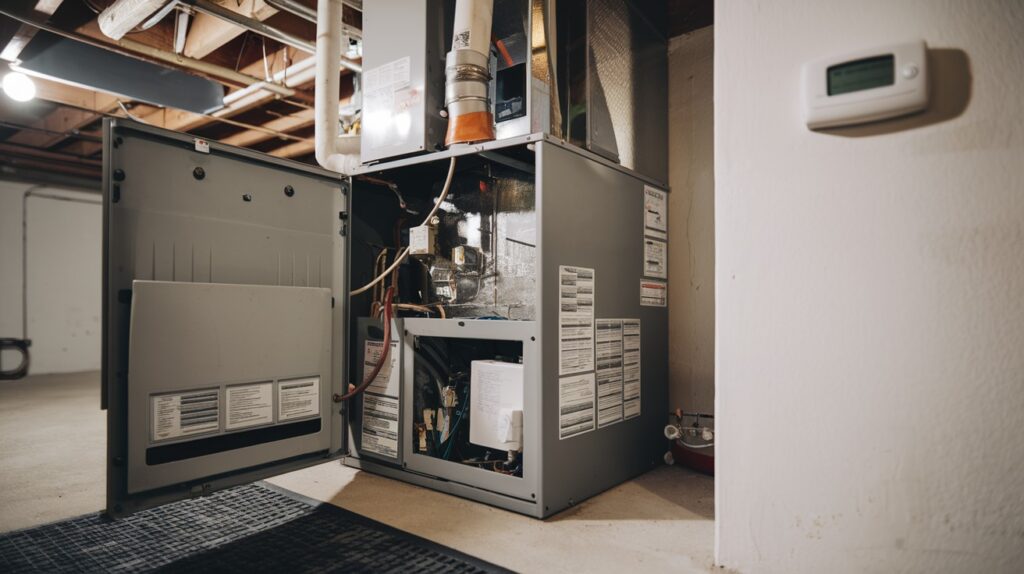As colder weather sets in, a reliable heating system is essential for maintaining both comfort and safety at home. Yet, many homeowners overlook subtle signs that trouble is brewing in their furnace or heating equipment. Addressing minor issues before they escalate can mean the difference between a simple fix and an expensive emergency call. If you’re local, professional furnace repair in Edison, NJ is just a call away to help get things back on track quickly and affordably. Early warning signs of heating system problems can save money, reduce downtime, and ensure safety. Proper maintenance and professional help can prevent unexpected breakdowns.
Unusual Noises
Furnaces and heating systems are engineered to run quietly. Banging, clanking, screeching, or any other strange noises are almost always an indication that something isn’t working as it should. Common culprits behind these sounds include loose blower belts, damaged bearings, or even debris caught in moving parts. Addressing the issue promptly can prevent minor repairs from turning into major ones. According to theU.S. Consumer Product Safety Commission, early intervention is crucial for extending the lifespan of your system.
Inconsistent Heating
Have you noticed rooms that never seem to get as warm as others, or cold spots that persist despite running your heater for a long time? Inconsistent or uneven heating is a classic sign that your system is not performing optimally. Possible causes could include blocked vents, leaky ductwork, or a malfunctioning thermostat. Identifying the source of these fluctuations is essential to restoring both comfort and efficiency throughout your home.
Increased Energy Bills
If your heating bills suddenly spike despite no significant increase in usage, your system could be losing efficiency. Factors such as clogged air filters, poor insulation, failing motors, or worn-out components may cause your heater to work much harder to maintain the desired temperature, thereby driving up operating costs. According to theU.S. Department of Energy, regular maintenance can help keep these energy costs under control while improving your furnace’s performance.
Short Cycling
Short cycling occurs when your heating system turns on and off rapidly, running for only brief periods each time. This not only impacts comfort by leaving indoor temperatures inconsistent, but also puts considerable strain on system components. Common causes include dirty air filters, faulty thermostats, or overheating issues. Allowing short cycling to continue unchecked can significantly shorten the life of your heating system.
Unpleasant Odors
Strange smells coming from your heater should never be ignored. Burnt odors may signal dust or debris buildup inside the system, while a musty core could indicate mold growth – a particular concern for anyone with allergies or respiratory issues. If you ever detect a sharp, sulfur-like smell (often described as resembling rotten eggs), it may indicate a dangerous gas leak. In this case, you should leave the house immediately and contact your utility provider or emergency services.
Visible Leaks or Moisture
Any sign of moisture or water pooling around the base of your furnace or heat pump should be taken seriously. This may indicate issues such as a blocked condensate line, loose internal components, or a refrigerant leak in heat pump systems. Left unchecked, moisture can damage both your heating system and your home’s structure. It can even promote the growth of mold and mildew, compounding the problem with additional health risks.
Pilot Light Color Change
For homes with gas-powered furnaces, the color of your pilot light is an important safety check. The flame should burn a steady blue. If it appears yellow or orange, this is a sign of incomplete combustion, which can produce dangerous carbon monoxide gas. A color change in the pilot light always warrants immediate attention from a qualified HVAC technician to prevent health hazards and restore safe operation.
Preventive Maintenance
The best way to avoid heating breakdowns and unexpected repair costs is regular preventive maintenance. Annual inspections and tune-ups keep your system in top shape, catching issues early and ensuring peak efficiency throughout the season. Homeowners should make it a habit to check air filters monthly, keep vents unblocked, and schedule professional inspections yearly before winter arrives. These steps pay off in the form of lower bills, fewer repairs, and a longer-lasting system.
Conclusion
Being attentive to early warning signs and investing in routine maintenance can make all the difference in your heating system’s performance. Small efforts such as replacing filters, monitoring odors, and scheduling annual tune-ups translate into significant savings and long-term reliability. By staying proactive, you safeguard not only your home’s comfort but also your family’s safety and well-being throughout the winter season.

